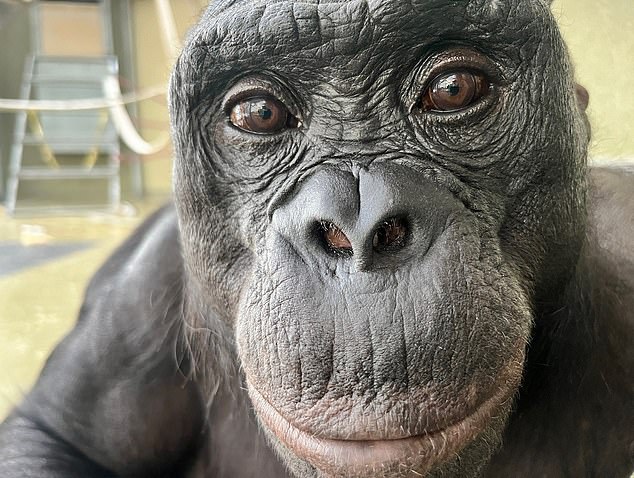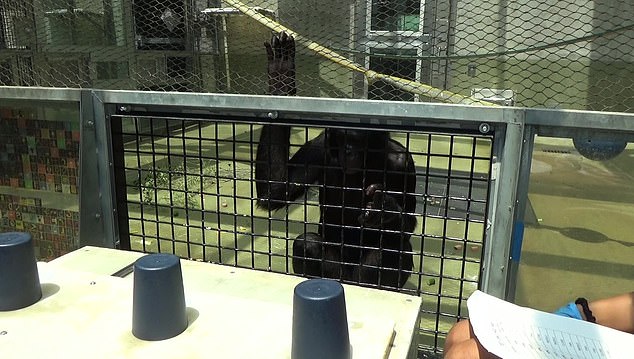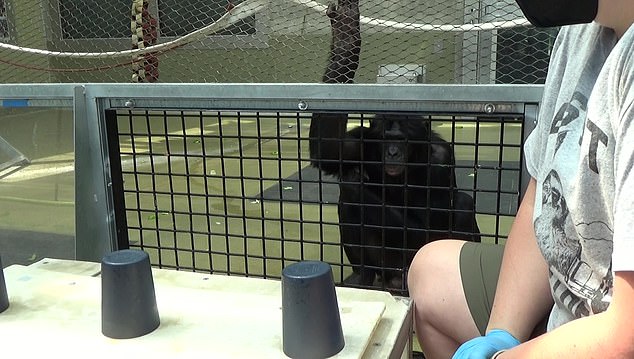Apes May Intuitively "Read Minds" Like Humans, Study Finds (International Edition)
Monkeys might be more intelligent than we believe and have the ability to intuitively 'understand others' thoughts,' similar to humans.
Understanding what another person knows is a complex capability that human children start to develop around their third year of life.
Researchers have dedicated nearly half a century to finding evidence that various species, ranging from chimpanzees to ravens, possess this ability; however, numerous experts remain doubtful.
Currently, scientists possess compelling proof that bonobos genuinely have the ability to understand human thoughts and utilize this insight to interact effectively for obtaining a delicious reward.
Three bonobos — Kanzi, who is 43 years old, Nyota, who is 25, and 13-year-old Teco, who are companions and reside at a research center in Iowa - collaborated with a researcher to obtain half a grape, a piece of apple, a peanut, or some Cheerios.
A second individual placed the food beneath one of three cups, after which, upon discovering it, the researcher would hand the item over to the opposing bonobo.
Nevertheless, at times the researcher remained unaware of the location of the delectable snack, as a sizable cardboard obstacle obstructed their view.
The apes were able to tell when the researcher hadn’t witnessed the cup being placed over the food.


However, it requires a significant act of insight to grasp that this indicated the researcher was unaware in their mind about the location of the food.
It was evident that the apes had 'read his mind' because of the additional efforts they exerted to assist him in locating the food after he hadn’t witnessed where it was concealed.
When the researcher wasn’t aware of the location, they were 29 percent more inclined to indicate the cup hiding the food. In this scenario, their response time was approximately 1.5 seconds quicker compared to when the researcher knew its position.
Dr. Chris Krupenye, who co-authored the study and serves as an associate professor of psychological and brain sciences at Johns Hopkins University, commented, "Recognizing what others do not know is fundamental to our most advanced social actions, essential for how we collaborate, converse, and tactically join forces."
‘Because this so-called theory of mind supports many of the capacities that make humans unique, like teaching and language, many believe it is absent from animals.
‘But this work demonstrates the rich mental foundations that humans and other apes share-and suggests that these abilities evolved millions of years ago in our common ancestors.’

Previously, chimpanzees have been thought to read the minds of others because they make more alarm calls about a nearby snake to chimpanzees who haven’t seen it.
However, some experts remained doubtful, as the chimpanzees might have merely screamed in fear instead of signaling an alarm to one another.
The research demonstrated that apes have the ability to simultaneously retain two concepts: knowing where certain food is concealed under a particular cup and understanding that another individual is unaware of this location. They also managed to convey this information.
The research was published in the journal Proceedings of the National Academy of Sciences.
Read more
Post a Comment for "Apes May Intuitively "Read Minds" Like Humans, Study Finds (International Edition)"